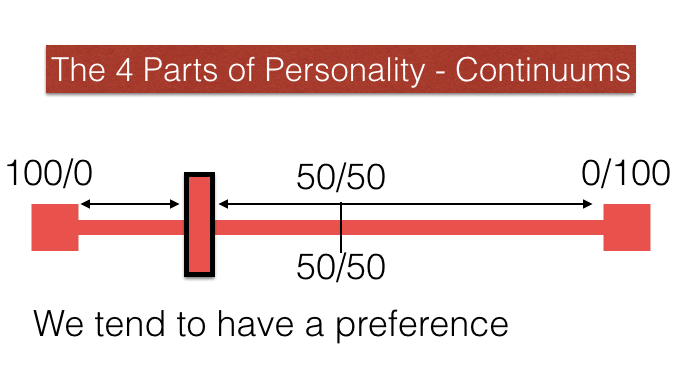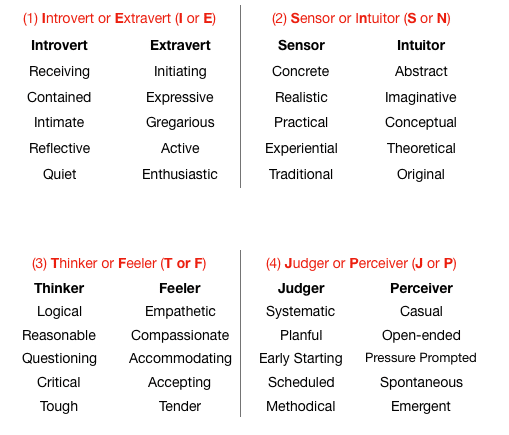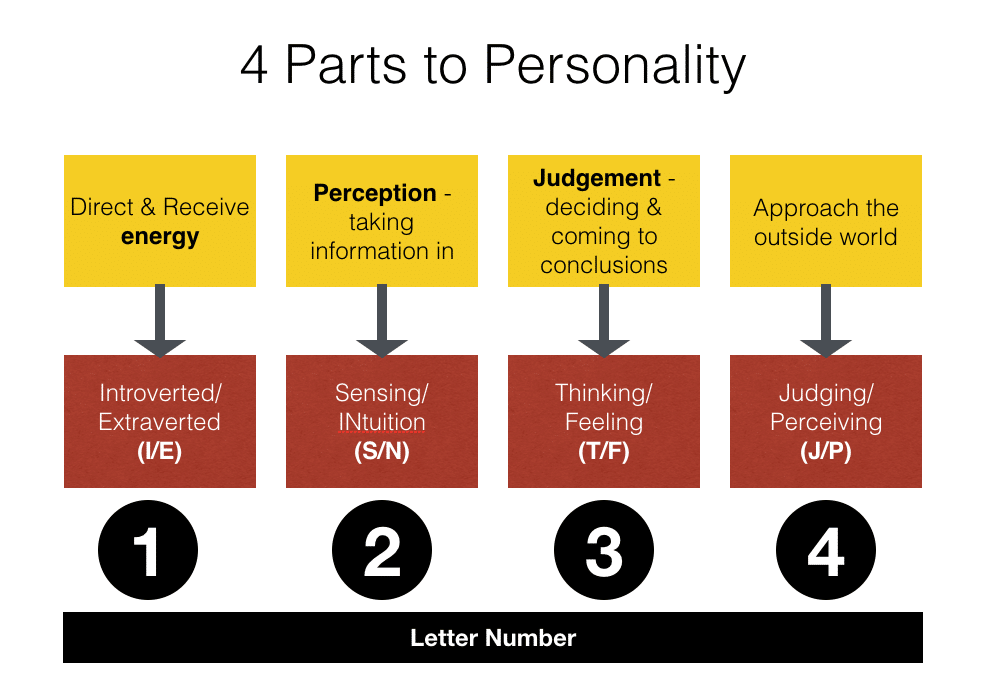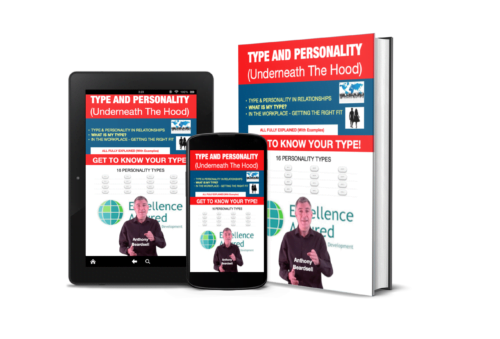In my childhood one of the things that I remember was the significant amount of order in our household. On Mondays certain things happened, on Tuesdays certain things happened, on Weds certain things happened. I knew what we were going to have for tea on Thursday. It was gammon and mash night, on Friday it was chicken and chips.
On Saturday morning we went swimming and we had fish and chips for lunch. Saturday evening was either babysitter night, or Mum and Dad entertained.
For my parents, schedules and routines were everything. My mother and father ran our household and the lives of my sister and I like clockwork.
I seem to have picked up the tidiness trait from my parents and my friends are always joking about that fact that I like everything in little boxes!
The four parts of our personality largely come from experiences that we have had, the memories that we hold, the decisions that we have made about whether we like something or we do not. Our personality is formed to a large degree by our experiences of childhood.
So, whether your wineglass is half-full or half-empty, whether you see life through rose tinted spectacles or not, whether you are out there in ‘la la land’ in the abstract or whether you like the finer detail. Whether you like to be lovingly told that you are doing a fabulous job, or whether you just know, these are all parts of your personality.

The four part of personality (continuums) will vary across different contexts of life depending on the experiences that we have had. Don’t ask me to be untidy, I couldn’t do it.
Personality types are a way of describing and predicting our behaviour. They are not boxes, they are not a right or wrong, good or bad. Each pattern is a continuum from one extreme to the other. There are many ways of applying type to human behaviour which people find rather useful, Myers Briggs personality types are just one way of typing human behaviour, a way of predicting behaviour, a way of motivating behaviour.
When we talk about “typing” we are not “boxing” personalities we are suggesting that people have in-built preferences for the way that they behave and think. Personalities are developed over a lifetime and will change according to how life evolves for each of us.
Think then about preferences.
Have a read of the words associated with the lists in the table below. Do you have a preference for one side of each continuum or another.
It is rare for someone to be wholly one side of any of the four parts of personality. The chances are though that we each will have a perference. Eg we will prefer to think and behave as an Introvert or Extravert. We will prefer to think and behave as a Sensor or Intuitor. We will prefer to think and behave as a Thinker or Feeler. We will prefer to think and behave as a Judger or Perceiver.
Here are the 4 continuums associated with Personality:

Next up >>>> Using Personality Types in the workplace
Interested in learning more about Personality Types or to discover your own personality type? Get my new book TODAY – and with a great discount!
[fusion_woo_shortcodes]
[/fusion_woo_shortcodes]

